A bustling short stay for departing HC
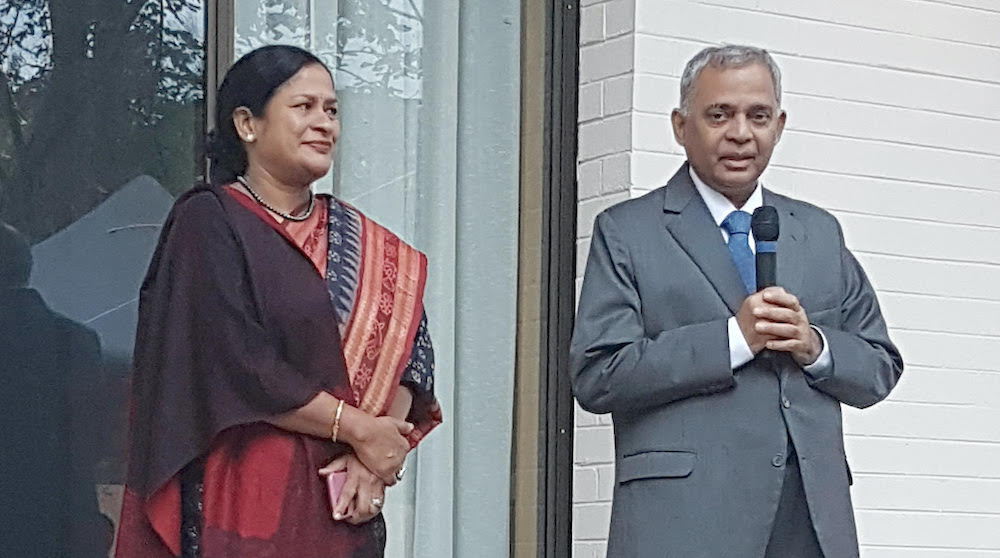
By Neena Badhwar and Santosh Gupta
India’s High Commissioner in Australia for just over a year, Gitesh Sarma, leaves Down Under having turned 60 on March 7 this year, the community remaining unfulfilled not having seen enough of Mr Sarma due to COVID-19 and a relatively short stay. Mr Sarma is an erudite bureaucrat and a well-known expert in Eastern politics.
Mr Sarma joined the Indian High Commission in Canberra at the end of 2019. He came with a great service record having joined Indian Foreign Service in 1986. Earlier, he had worked as Under Secretary (East Europe) and held the post of Director, Central Asia. His overseas assignments include Indian missions in Russia, Ukraine, Hong Kong, Pakistan and United Kingdom. He has been Indian Ambassador to Uzbekistan and High Commissioner of India in Fiji.
Mr Sarma also served as the Officer on Special Duty (IT Enabled Services) in the Information Technology Department of the state of Andhra Pradesh, Joint Secretary (External Relations) in the Department of Atomic Energy and Secretary(West) in the Ministry of External Affairs until November 2019.
The Indian Down Under talked to him in an interview of his short but fruitful stint in Australia’s capital, Canberra.
Q. Sir, it’s been a short one-and-a-half year posting in Australia for you. Normally, it’s relaxed and enjoyable in Australia, especially at the end of a diplomatic career. How was your experience?
It has been a period of intense activity with bilateral ties being elevated to Comprehensive Strategic Partnership. The Virtual Summit of June 2020 was a high point last year. There has also been engagement at other levels and our relations are multi-faceted. Given the close ties, good understanding at all levels and mutual respect, working in this country has been a happy experience. There has certainly not been any free time to relax.
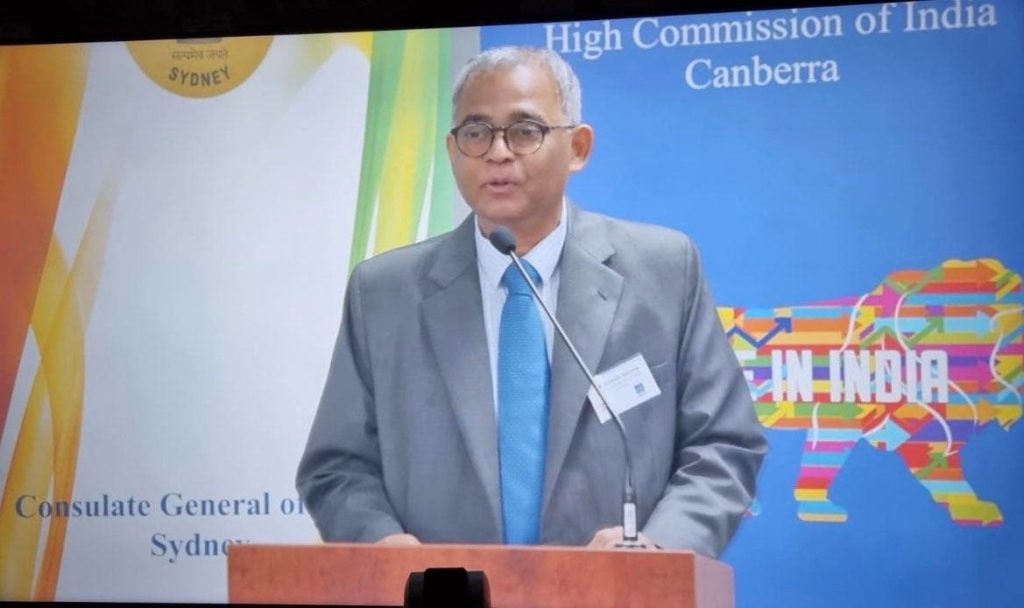
Q. You started foreign service in 1986 and served as the Officer on Special Duty (IT Enabled Services) in the Information Technology Department of the state of Andhra Pradesh, Hyderabad and also Joint Secretary (External Relations) in the Department of Atomic Energy. How were these postings?
Life is about timing. One needs good instincts to sense opportunities to learn and to contribute. I was part of a crack team working to transform Hyderabad into a major IT and ITES hub. The work was exciting because we were competing with other cities and indeed other countries and this was good for business. In 2003, NASSCOM rated Hyderabad, after a city survey, as India’s best ITES destination. Some of the world’s top IT & ITES companies chose Hyderabad, including Microsoft.
Work in the Department of Atomic Energy was also special. I was part of India’s civil nuclear engagement, which resulted in recognition of India’s special and unique status. India’s S&T capabilities is something to be proud of.
Q. There is a lot happening as you leave: ongoing COVID-19, QUAD Group, farm laws, vaccine Maitree, etc. Let’s first know your comments on the group of four India forms along with the US, Australia and Japan. Is it a going to be strong similar to NATO or just a paper tiger.
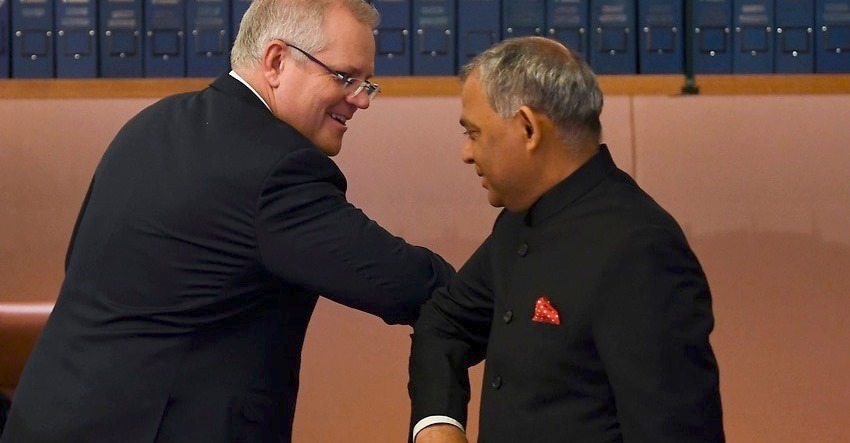
India, US, Australia and Japan are democracies. In economic terms, each of these countries has comprehensive capabilities and there are many complementarities. Our joint activities are not aimed at any other country. There are opportunities for us to work closely to promote the common good, and common universal values.
Q. Covid-19 has been a very trying time for the world governments including Indian? Would you elaborate how the Indian government handled this very difficult year yet came out shining with the vaccine and its role in helping not only the Indians and neighbouring countries but many countries across the globe as well?
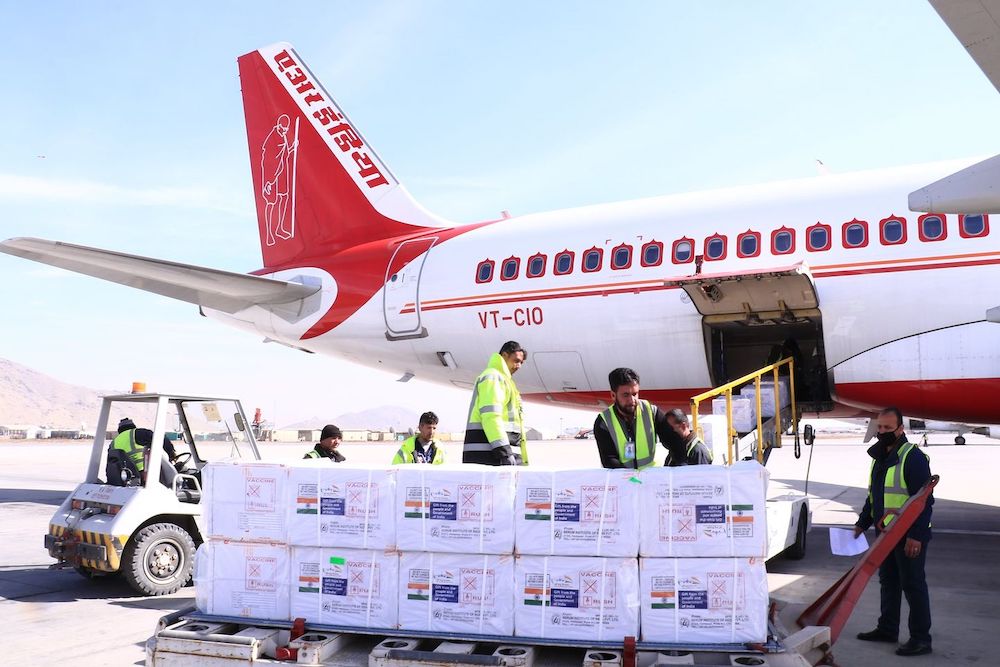
The Indian Government took early action to deal with the pandemic. Some measures may have seemed tough but, as we can see now, they have helped. India’s pharmaceutical industry has responded to global needs and demands too. Indian vaccines are being exported all over the world. We believe that we are an important part of the solution with huge manufacturing capabilities with regard to vaccines and pharmaceuticals.
Q. COVID has stranded thousands of Indian international students due to come to Australia. Their studies and careers have been jeopardised or in limbo. What initiatives Indian and Australian governments are taking in this regard and also to soften the blow of Covid restrictions?
Air India has sustained air connectivity between our countries in difficult business conditions. This is very commendable. The Australian Government has also always been sympathetic to the plight of the affected students. Individual States and universities have done their bit to provide relief. Indian community organisations have done wonderful work to support those in distress. These are difficult days but it is important to work together for the common good, and Indian students have an important place in Australia.
Q. Sir, as we know, a lot is happening in India with recently legislated farm bills and some farmers/farmers’ agents protesting for some months now. What has been your perception as India’s High Commissioner in Australia? There is also some tension in Sydney relating to their protest in India with some extremist parochial groups disrupting the harmony among the India Diaspora here. What would you say to the polarised community and your views of the situation?
India and Australia are vibrant democracies. Issues are discussed and debated. Leaders have also taken decisions, which are in the best interest of the country. Naturally, our diaspora is emotionally connected with India. They should be assured that the Government of India has the welfare of all in mind. Since we are similar countries in terms of our adherence to democratic values, we also know that we should do nothing to damage the respect our people have in Australia and we should discourage interference in each other’s affairs.
Q. What are your views on bilateral trade between India and Australia, knowing that the trade would have been badly hit due to COVID? Also, from the point of community activities, Sydney has been particularly quiet, also, may be, due to lack of initiatives towards the community. Any comments?
It is important to give an impetus to our trade and commercial relations. For this, there needs to be greater awareness of business opportunities. India’s economy is poised for growth. Australia is a resource rich country. Cooperation in education is a promising area. India’s New Education Policy provides opportunities for Australia’s world-class universities to work in India. Sky is the limit with regard to economic cooperation. Sydney is a great commercial hub and we have a very active Indian Consulate there. As we become increasingly good at handling the pandemic, it will be possible to do joint activity in more familiar ways, including travelling.
Q. Coming back to your diplomatic career – You have been to Russia, Ukraine, Hong Kong, Pakistan and United Kingdom, and as the Indian Ambassador to Uzbekistan and High Commissioner of India in Fiji. How would you define your achievements?
Do you still have some pending work which you planned to do but haven’t been able to finish? Also, what was your overall experience Down Under and what would be your message for the Indian Diaspora here?
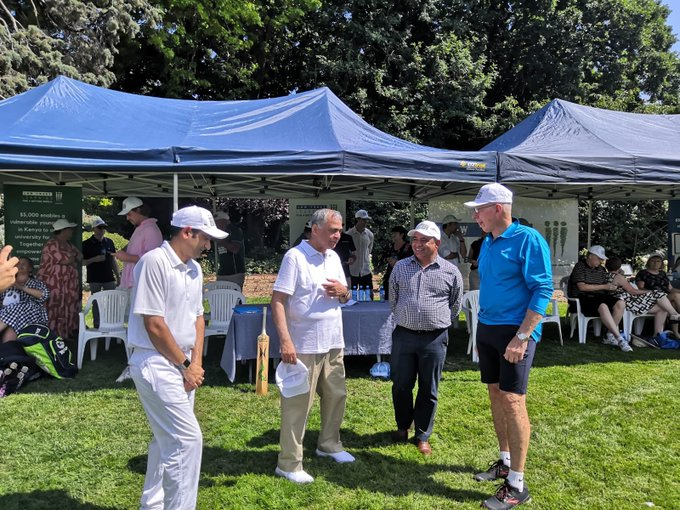
Each of my postings was a learning opportunity. It was a proud feeling to represent India and be constantly inspired by its flag. But it was also important to recognise that India’s rising stature and also the achievements of the Indian Diaspora worldwide has made a huge difference to India’s global standing and the way I was required to function over the years.
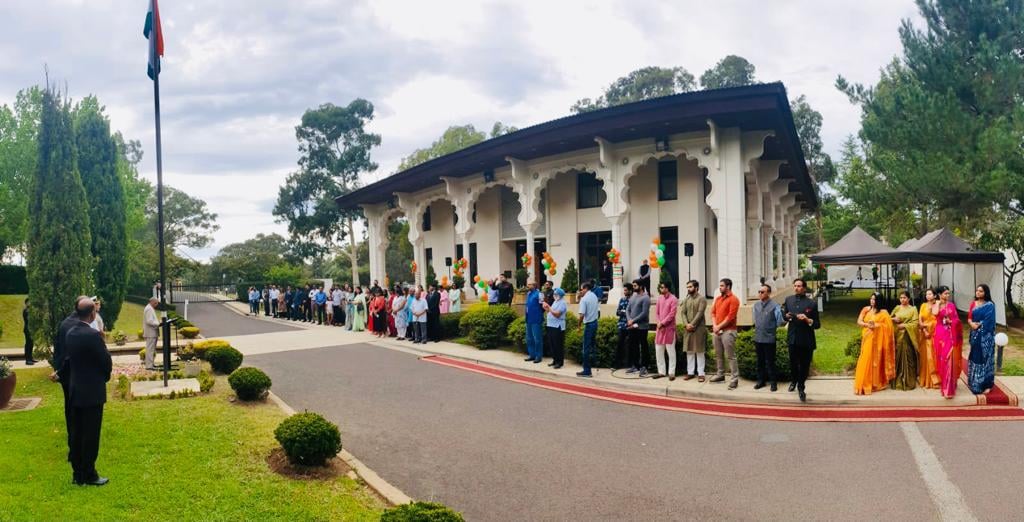
Q. What are your plans for the future after the cherished high profile diplomatic career?
Diplomacy is all about making friends. I have friends all over the world. I have seen countries in ways few can as tourists or visitors. I have seen international politics taking various turns. And I have felt and sensed India’s rise as an influential power, which is working for the world good. I need some time to collect my thoughts. I will then look towards giving back to society and India in some way.
Mr. Sarma said at the end of his interview with TIDU, each of the Indian Diaspora he came across he drew inspiration from and that he will cherish the warmth shown to him during his tenure in Canberra. He also welcomed his successor Shri Manpreet Vohra.

Short URL: https://indiandownunder.com.au/?p=16219
